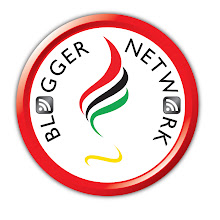I am very excited about the upcoming Lausanne Capetown 2010 conference in South Africa. It is a key moment in the life of the 21st Century global church. You can follow Capetown on twitter at www.twitter.com/capetown2010.
This month the Global Conversation leading up to the event is focused on how our world understands truth. This is a key topic for this century and it needs some fresh thinking. I want to focus on one paragraph from Mark Chan's article in Christianity Today and on the Global Conversation:
"Our common humanity is a good starting place to share the truth of Christ. It is in the safety of genuine friendship, where trust is earned and respected, that we may honestly question assumptions. Christians can learn to sow seeds of subversion in the field of relativism by raising questions about the adequacy of moral relativism as a guide for life."
What I like about his approach is that he is starting from a position of human relationship when he talks about truth. The mistake we make so often is to force truth into an objective and sterile world. The age of modernity pushed this as the ultimate goal. But in making the truth sterile they also made it completely without meaning to humanity. It was a bunch of numbers and facts on a page without any context.
In the context of relationship we can validate the truth that we know and understand and commit to learn the rest of the truth in humble community. Mark did not really go there and I wish he would have taken that next step and challenged people not just to fight against relativism but to actively learn truth together.
One of the great challenges that we run up against in the "fight for truth" today is that people think they have to defend the truth. One of the things that Mindy and I have realized as we wrote the book with Dr. Paul Hiebert about our truth lenses is that the best defense for truth is a strong commitment to learning in community. It provides accountability and it also allows our understanding to be framed by what God is telling people across many backgrounds, cultures and experiences.
As we share about in our book, relativism is a natural progression from the short-comings of modernity. The key challenge I would like to throw out there is that the answer is not to pull people back from the raging river of relativism to the rocky shore of modernity. There is another side to the river where absolute truth can exist within the context of learning in community. That is what will appeal to those tired of being buffeted by the waves of relativism.
2026 Prayer
-
Each year since 2023, I have written a prayer to guide the year ahead.
These prayers have provided great comfort, strength and encouragement to
me. I hop...
1 week ago






No comments:
Post a Comment